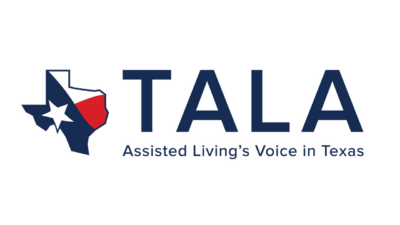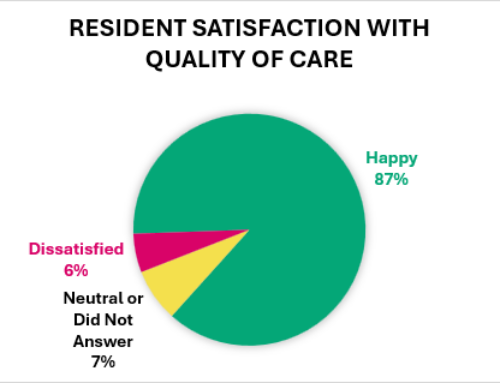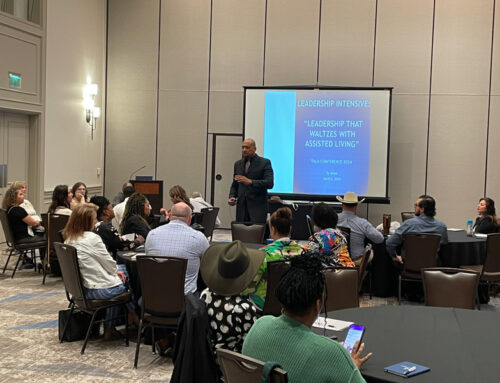Do opportunities lie within a recruitment and retention strategy when viewed with an Attitude of Gratitude?
As we head into the holidays, the time to reflect back with immense gratitude to all who serve in senior living is with greater meaning this year. The pandemic has lingered on with uncertainty and strain on communities and all those who support them. Yet, so many individuals continue day in and day out to show up with a positive attitude and serve.
Thank you!
Thank you all for your ongoing commitment, for the endless extra hours and efforts, and for the dedication to ensuring your residents are well cared for. With an Attitude of Gratitude in mind, let us reflect on the staffing challenges community leaders continue to face and together explore possible solutions.
Challenges Communities Still Face
Applicant pools for front line staff such as caregivers, kitchen support, and housekeeping have hit an all time low. Even with the unemployment rates in Texas down to 5.4% and new unemployment claims on the decline, the overall number of applicants have significantly dropped. A Washington Post headline on November 12th, 2021 reads, “A record 4.4 million Americans quit their jobs in September as labor market tumult continued”. The article further reports “rising coronavirus cases, problems finding child care and better wages elsewhere have all promoted a record number of Americans to quit their jobs.”
The senior care industry has lost a significant number of workers included in those numbers and for similarly related reasons. In addition, communities are pressed with increase wage pressures competing for applicants with retail, restaurants and other industries.
Reflection On Current Staff
Before tackling the challenges, let us take a moment to reflect on current staff.
Senior living workforce demographics reflect a majority female workforce. Staff ages primarily rage between 25 and 45. As a result, the workforce faces challenges unique to women in this age group understandably may include struggles to find access to child care in the midst of a pandemic impacting ability to commit to scheduled shifts or pick up additional hours. In industry survey’s reported by OnShift, community leaders indicate continuous challenges with call offs (80%) and inability to work when needed (58%).
Not much can be done to solve the child care needs at a community level, however, leaders empathetic responses to staff can have a longer positive impact on staff retention. Expressions of gratitude are shown to have lasting effects on employee retention. Simple acts of acknowledgement and appreciation impact employee satisfaction for all roles in a community.
Exploring What Matters To Staff
Most turnover occurs in the first 30 to 45 days of employment costing significant expenses to communities. Consider exploring what matters to current staff with a survey. Ask staff what benefits matter to them now given current circumstances.
-
- Could it be flexibility and understanding for scheduled shifts?
- Is there a need for easy ways to trade shifts vs. having to call off?
- Would cross training be beneficial?
- Would a mentor be helpful when transitioning a new employee into a new role?
- Is it more important to the employee to have flexible time off such as to care for a child unable to go to school due to COVID restrictions without fear of losing their job?
- Would incentive opportunities based on attendance with scheduled shifts be attractive to retain staff
- Are they more interested in professional development and career growth opportunities?
Leaders may convert the results of internal survey’s with actions that matter to current staff. Additionally, leaders may consider promoting with staff their individual value by providing recognition to staff for their suggestions and ideas adopted.
Leaders are also encouraged to conduct frequent ‘Stay Interviews’. Stay interviews are one to one touch points with staff to gain a pulse on their satisfaction levels and what growth areas to focus on. By doing so, leaders not only gain insights into staff satisfaction, but also gain valuable knowledge into the struggles staff are experiencing.
There is so much more to staff members who fill holes in a schedule. Community staff are proud, passionate and dedicated individuals caring for a vulnerable population. All staff experience the external challenges the country is faced with such as inflation, pandemic concerns and balancing family and career and all have an impact on their decisions to stay working in a community. Now is the time to listen to staff demands and adapt accordingly not only to retain current staff but to also create an attractive message in recruiting new staff to the industry.
An Attitude Of Gratitude applies to ALL staff serving senior populations. Thank you on behalf of TALA for all you do, for all your flexibility and determination to power through and for your continuous adaptation to finding solutions to better serve resident in senior living communities.
THANK YOU!





